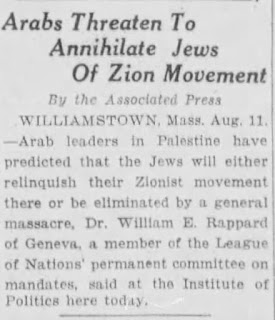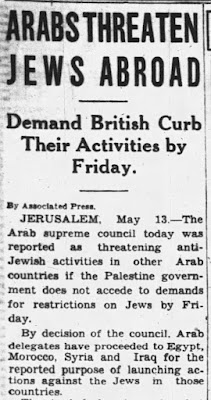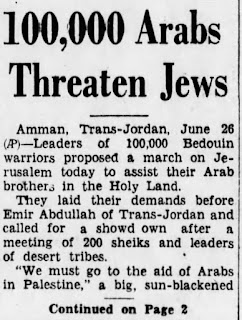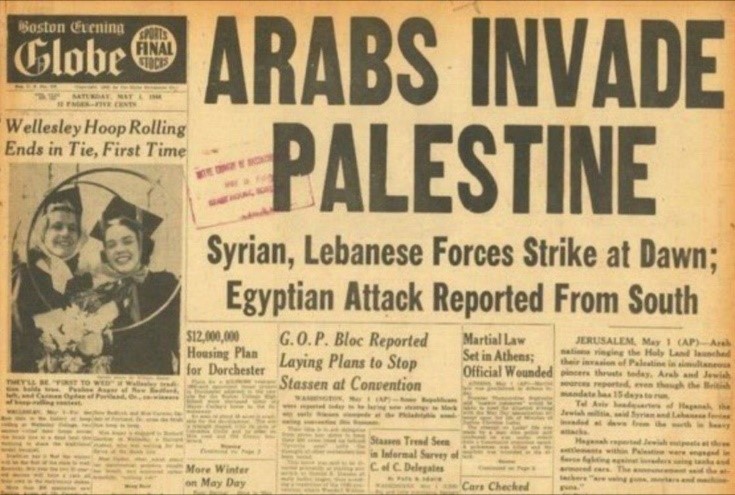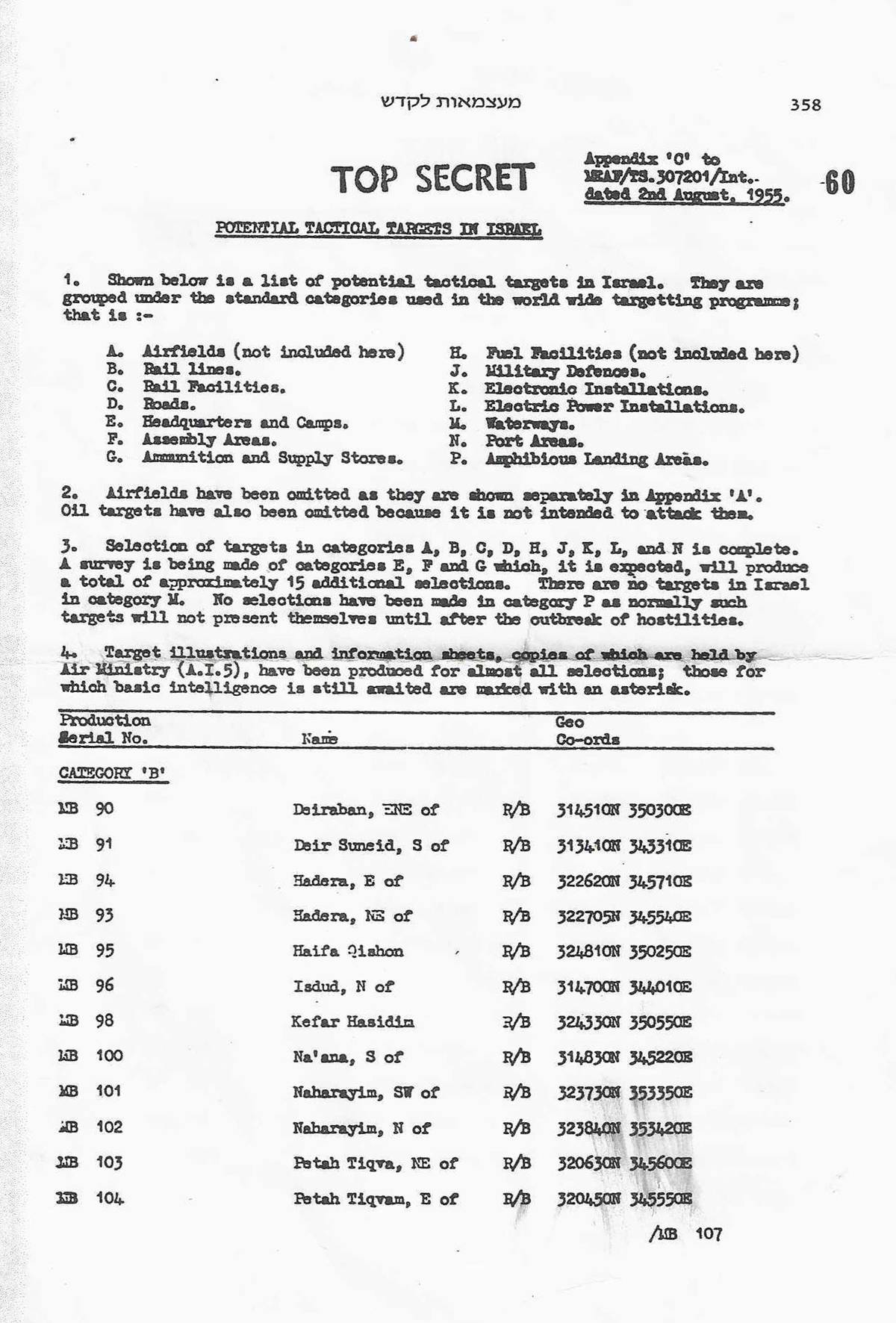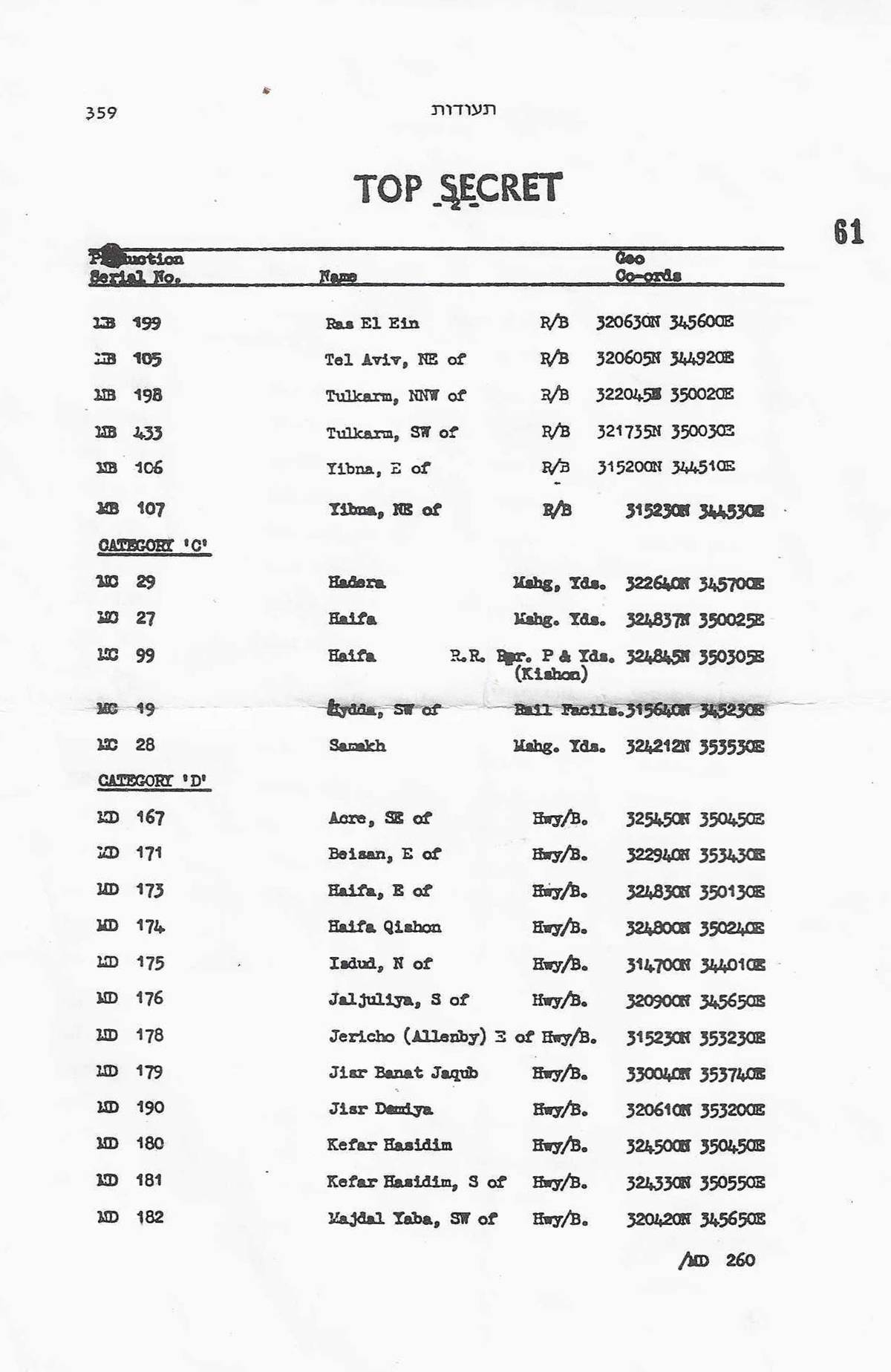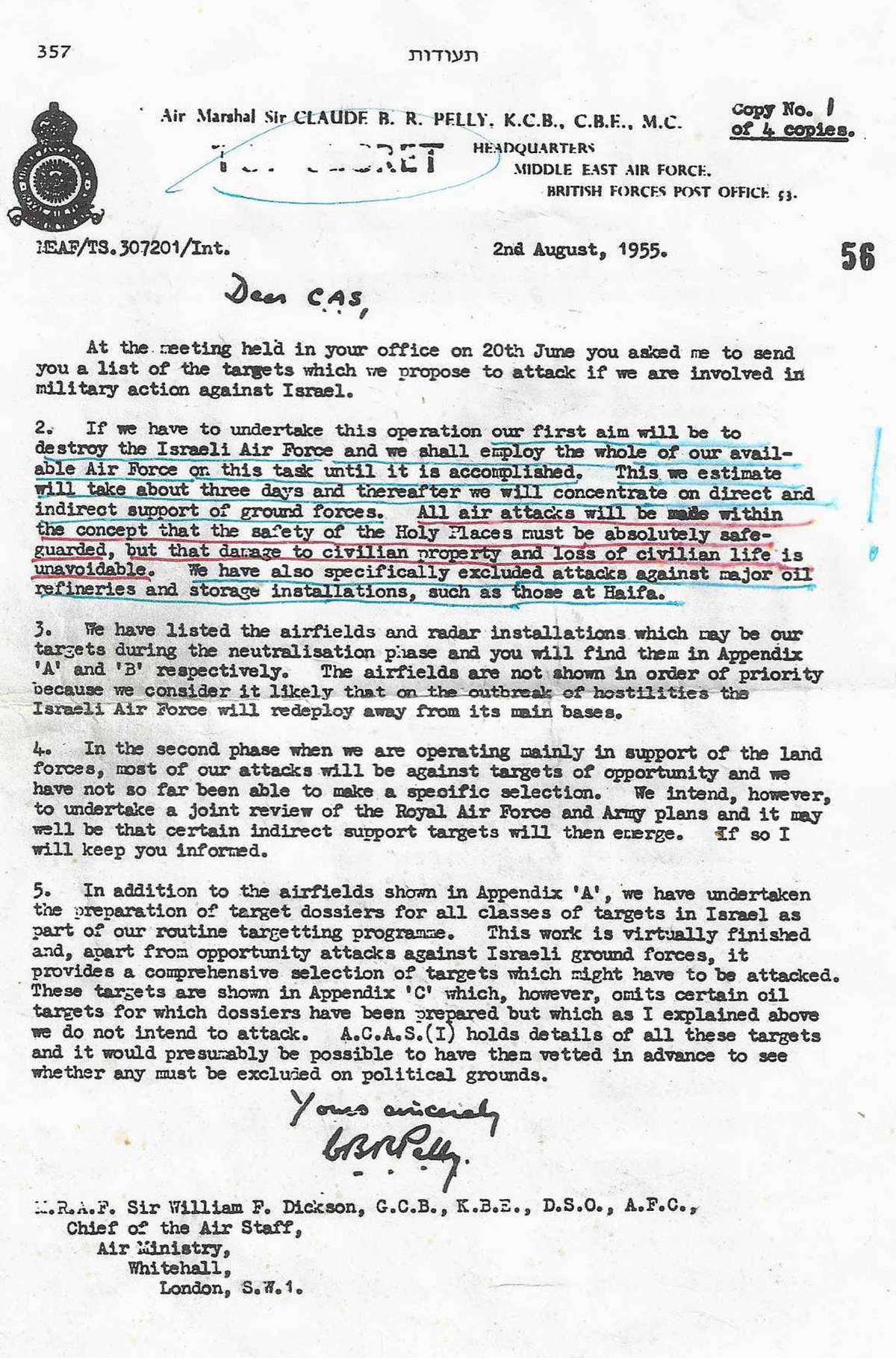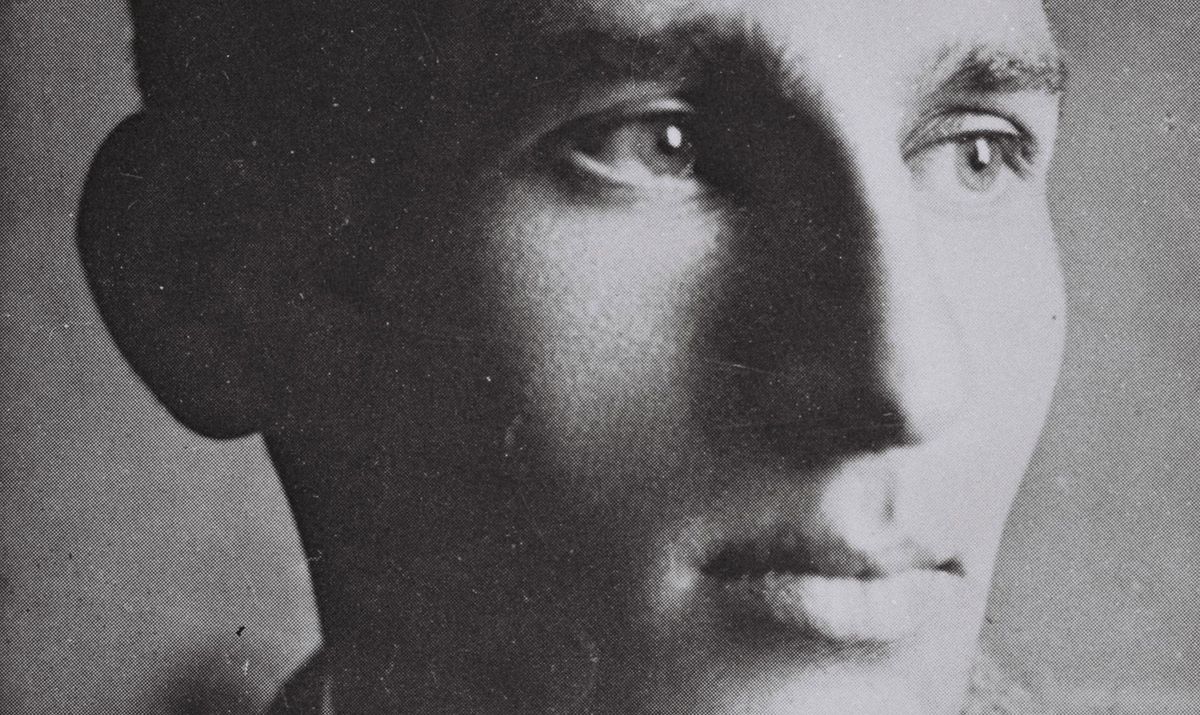Sixties Fan
Diamond Member
- Mar 6, 2017
- 53,298
- 10,360
- 2,140
The Wisconsin Jewish Chronicle reported on December 12, 1947:

The original JTA story was dated December 9.
The UN Palestine Commission was created as a result of the Partition resolution of November 30, so the policy of "no Jews, no Arabs, no Britons" must have only existed for a week or so.
Even so, this is remarkable. The UN at the time met in Lake Success, in Long Island, NY, and there would have been very few Arabs or Britons available for the commission; the only practical effect of this rule would be to ban Jews.
Meaning that, for a short time, the UN banned American Jews from membership of a high profile commission, because they were Jews.
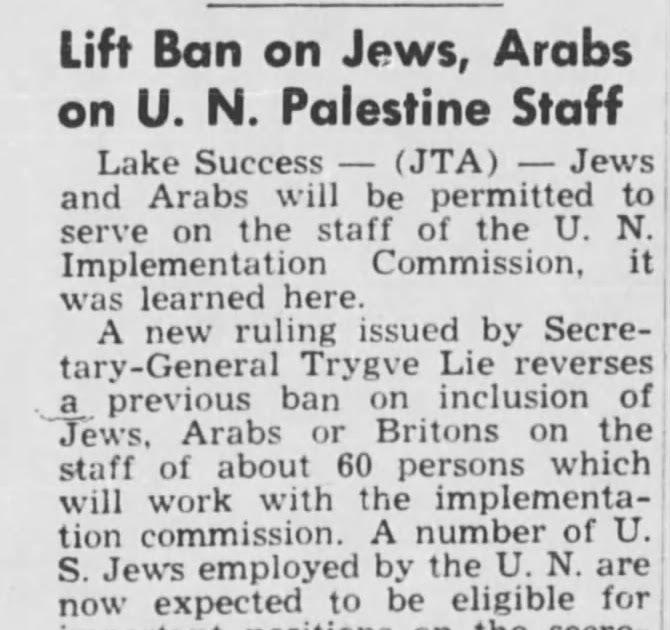
 elderofziyon.blogspot.com
elderofziyon.blogspot.com

The original JTA story was dated December 9.
The UN Palestine Commission was created as a result of the Partition resolution of November 30, so the policy of "no Jews, no Arabs, no Britons" must have only existed for a week or so.
Even so, this is remarkable. The UN at the time met in Lake Success, in Long Island, NY, and there would have been very few Arabs or Britons available for the commission; the only practical effect of this rule would be to ban Jews.
Meaning that, for a short time, the UN banned American Jews from membership of a high profile commission, because they were Jews.

When the UN banned Jews from the Partition Commission
Blogging about Israel and the Arab world since, oh, forever.



